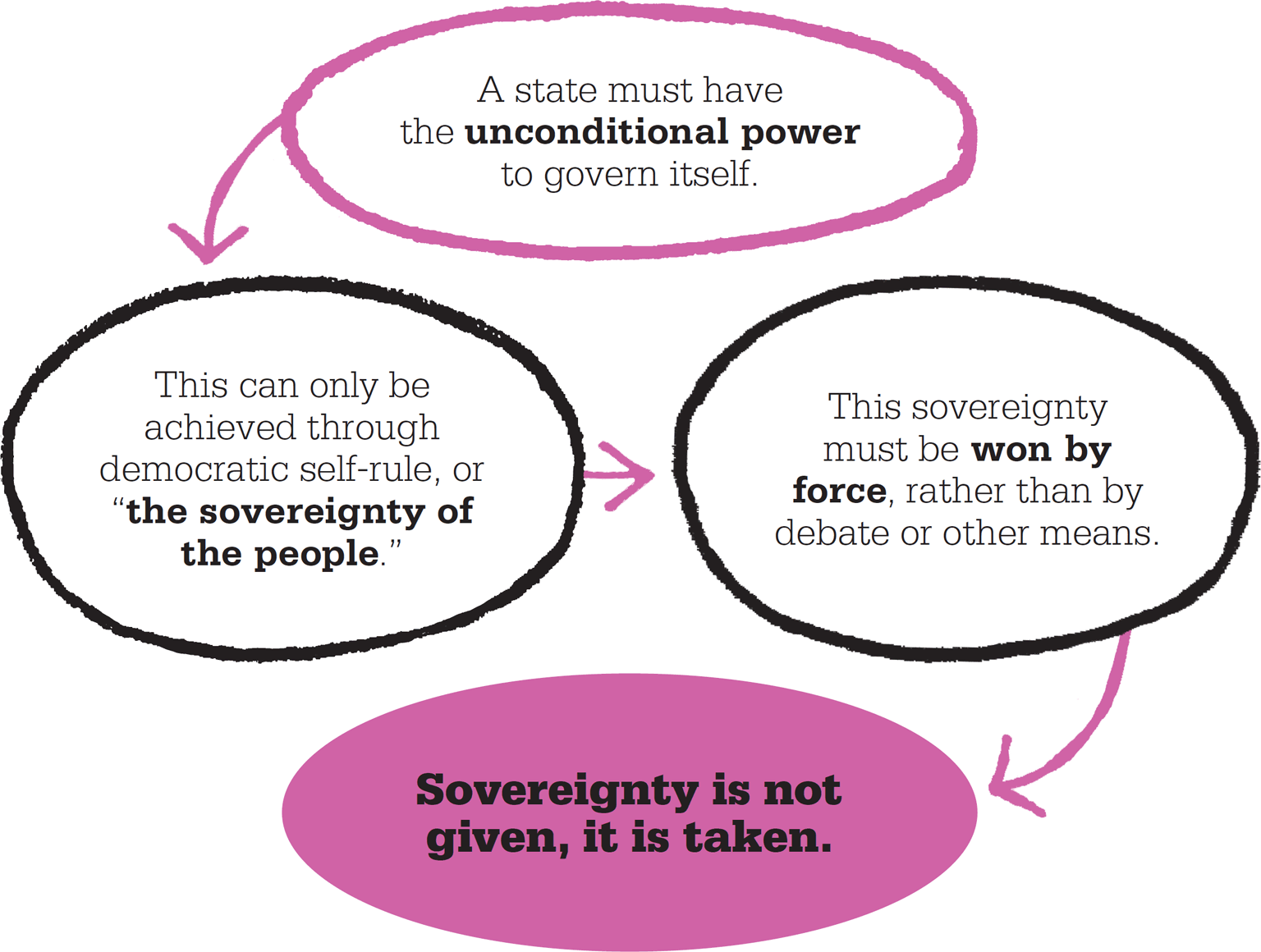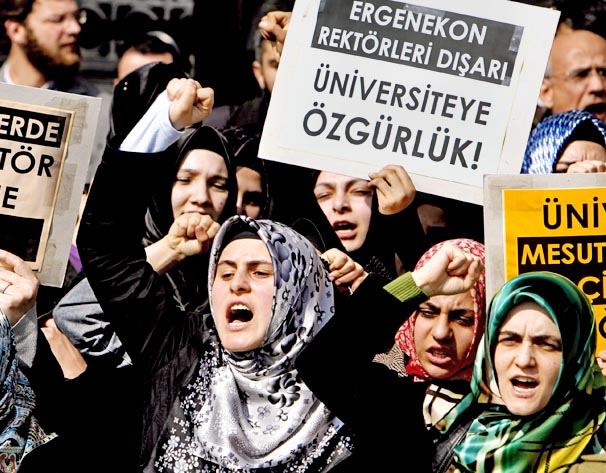
IN CONTEXT
Nationalism
Representative democracy
1453 Mehmed II attacks Constantinople, and the city becomes the capital of the growing Ottoman empire.
1908 The Young Turk Revolution reestablishes the parliament, which the sultan had suspended in 1878.
1918 The Ottoman empire is defeated in World War I.
1952 Turkey joins NATO and aligns itself with the West in the Cold War.
1987 Turkey applies for full membership of the European Economic Community.
2011 Turkey’s top military command resigns, ceding political control to the prime minister for the first time.
Following the Ottoman empire’s defeat in World War I, the 1920 Treaty of Sèvres dispossessed it of its Arab provinces, set up an independent Armenia, made the Kurds self governing, and put Greece in control of western parts of Turkey. A rebel Turkish army, under the command of Mustafa Kemal Atatürk, rose up to challenge the caliphate army of the Ottoman sultan and the occupying forces that were supporting it. The war for Turkish independence had begun.
With the help of Russian Bolshevik weapons and money, Atatürk defeated the foreign occupiers, and the sultan fled to Malta on a British battleship. Just three years after the Treaty of Sèvres, the Treaty of Lausanne recognized an independent Turkish state, and Atatürk was elected its first president.

Sovereign will of the people
Atatürk was determined to establish a modern nation-state amid the ruins of the feudal Ottoman empire, which had undergone little industrial development. He believed that a balanced and equitable society, which could deliver the essential guarantees of freedom and justice for individuals, could only be built upon a state’s unconditional power to govern itself, or “the sovereignty of the people.” This, he insisted, could not be granted or negotiated, but had to be wrested by force.
Sovereignty meant, first of all, democratic self-rule, free from any other authority (including the sultan-caliph), from religious interference in government, and from outside powers. Atatürk’s “Kemalist” nationalism saw the Turkish state as a sovereign unity of territory and people that respected the same right to independence in all other nations. Although an alliance with those outside powers, or “civilization,” would act as an ongoing support for the new nation, the nation would still have to bring itself into being, politically, culturally, and economically, through revolutionary, self-imposed reforms.
"There is only one power. That is national sovereignty. There is only one authority. That is the presence, conscience, and heart of the nation."
Mustafa Kemal Atatürk
This concept of the sovereign power of a people to reform their own state was alien to the bulk of the population. Many in poor rural areas saw Atatürk’s program of modernization as the imposition of the will of a secular urban elite on an illiterate and deeply religious rural culture. Atatürk’s ability to harness the support of the armed forces enabled him to shape the new Turkish republic as a secular, Western-looking nation-state, but tensions between rural Islamists and the secularist military and urban elites persist to this day.

In accordance with Atatürk’s strict secularist ideals, the Muslim hijab, or headscarf, is banned in many Turkish institutions such as universities. This policy is a source of ongoing dispute.
MUSTAFA KEMAL ATATÜRK

Mustafa Kemal was born in Salonica, Greece in 1881. He was a distinguished student at military school, excelling in mathematics and literature, and completed his studies in the School of the General Staff in Constantinople. He quickly rose through the ranks and took command of the Seventh Army during World War I, but resigned from the Ottoman army in 1919 to head a resistance movement against the occupying forces.
From an early age, Kemal had taken part in underground opposition groups, and he led Turkey to independence in 1923, becoming the first president of the new, secular state. He was given the name “Atatürk,” meaning “Father of the Turks” in 1934 by the Turkish parliament. He died in 1938 of cirrhosis of the liver, after many years of heavy drinking.
Key works
1918 A Chat with the Chief Commander
1927 Nutuk (transcript of a speech to the Grand National Assembly of Turkey)
See also: Jean-Jacques Rousseau • Ito Hirobumi • Sun Yat-Sen
